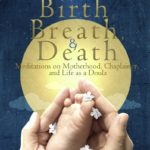He arrived dead. The police found his body on a curb between the road and the sidewalk, which served as the killer’s dumping ground. Certainly a name and a story accompanied this lifeless body lying on the hospital bed, but neither the hospital staff nor the police knew anything about his biography. Technologically advanced lifesaving machines remained unusually silent in the trauma bay. Two police officers stood guard at the entrance to the emergency room. My chaplaincy badge granted me entrance. The heavy doors swung open and the officers moved aside. I took a deep breath.
A male hospital technician waved me into the room and said, “Go do your thing, Chaplain.”
I saw the wounds up close. Two bullets had entered his back and come out of his chest above his left nipple. Who shot these bullets? The police referred to the murder technique as “execution style.” A doctor, who was visibly moved by this stranger’s sudden death, simply called the murder “senseless.” Indeed. What sense is there in such cold aggression in which form and substance were violently torn asunder?
I had never seen a murdered body. My heart pounded. During my twenty minutes with him, he remained an unknown man estimated to be in his thirties.
A solemn nurse washed bloodstains off the man’s face. After being shot, he had fallen facedown on the road. “His face got banged up,” she explained. Her hands shook as she washed him. Had he been robbed? He lacked all forms of identification and wore no jewelry.
Whenever I think about the terrifying toll of human violence exacted on each generation, I think of that man. In movies, countless bodies are shot and killed for entertainment, but there is nothing entertaining about such incidents. Was this violent end his karmic lot or a painful example of free will gone askew? Is there a creator God that knew this was going to happen? Is there a supernatural sinister sickness at work that moves people to murder? I wondered about human violence, mostly done by men to men.
To stand in front of a murdered man and be called to offer consolation is deep and difficult work. I imagined his body as a newborn boy. A mother marveled at every inch of it with precious tenderness. Why had he been shot through the back? Was he a father? A husband? Certainly he was a son to parents somewhere who tragically didn’t know that it was time to grieve.
The nurse finished washing his face. I placed my hand on his exposed bare chest, which was cold to the touch. Would he be all right with this gesture of human kindness? How would I want my body treated after such a brutal assault? What if he had been my husband? My brother? Taber? I consciously and prayerfully worked to calm my overactive, scared, and discursive mind.
“May the wisdom of compassionate silence fill me,” I prayed.
It was nighttime. The stars were out. Far above the fluorescent hospital lights, timeless, deep, dark space softly held our spinning world. I closed my eyes. The depth of the sunless, womblike sky filled my awareness. An immense spaciousness surrounded our planet, our solar system, and all galaxies. We were spinning in quiet, empty peace. It held all, including the realities of birth and death. This space held that man’s story. I didn’t need to know the details of it in order to touch him with kindness. I breathed in and prayed. Finally, my mind was quiet.
Gentle words came to me. I softly honored his life, and together with the nurse, we grieved his unexpected and traumatic passing. Tears poured from my eyes as I fully took in the sight of pierced skin. Bullet holes penetrated all the way through his chest. I kept my hand on his chest, a living hand on a still heart. The nurse and I stood together and acknowledged the life force that had once animated his form. I have never forgotten this man.

I turn to the wisdom of ages for sound advice in my efforts to diminish human suffering. In The Analects, a student asks Confucius, “Is there any single word that could guide one’s entire life?” Many good answers to this student’s question exist. Love is a wise teacher and a wise guide. So is truth. Yet Confucius invokes the power of mutuality when offering his response: “Should it not be reciprocity? What you do not wish for yourself, do not do to others.” Who would wish to be the man killed by two bullets?
Is there one word that can guide us in life? This is an important question. Sailors throughout the ages have looked to the stars to guide their wooden boats home. Arab astronomers invented the astrolabe in an attempt to outline their place in the universe. Birds of flight navigate by stars and avoid winds that could take them off course.
Connecting to the life around us and coming to care for its wellbeing constitute difficult and deep work. Compassion underlies reciprocity. As Plato said, “Be kind. For everyone you meet is fighting a hard battle.” We are called to love, listen, and wish for each other what we wish for ourselves. Whether a chaplain, a nurse, or a man with a gun, we need to pause and consider reciprocity. No one wants to be shot in the chest and found utterly alone on a curbside. When we disrespect each other, we ignore the inescapable network of life’s interdependence and create unnecessary pain in the world. People who practice gratitude and nurture a vision of connection don’t add to such pain. Rather, they work to study, change, and transform it.
Humans tell stories to aid each other in the pursuit of discerning wisdom. In its truest sense, education makes vibrant interdisciplinary connections that inspire meaningful action to benefit our world. As a teacher of ethics, I felt a strong obligation to instruct in such a way that strengthened the cycle of reciprocity upon which the human family depends. Often stories from my hospital chaplaincy days served as powerful real-life lessons in ethics. To me, true education is rooted in the values of living honestly, loving fully, and contributing to the good in our world.
The gifted teachers I have known used carefully crafted imagery and stories to enact meaningful change with the hope of reducing human suffering. For example, Professor of Philosophy Peter Singer uses a simple story to provoke meaningful action to end world poverty. He asks his students to imagine walking by a pond on their way to work and to notice a small child fighting for his life in the water. The child can’t swim and without assistance is surely doomed. Singer asks his students to imagine they are wearing a very expensive pair of shoes. Rushing into the water and saving the child will ruin this prized possession. Who would choose his or her shoes over the life of a helpless drowning child? No one should. Singer goes on to equate the pond with world poverty. Children everywhere are drowning in abject destitution. For the price of a single pair of expensive shoes, a life could be saved. This type of storytelling can be transformative and move a generation of inspired youth to action.
I often think of the mother of that unknown murdered man. I close my eyes and imagine the tears a mother sheds upon learning that her child had been murdered. What of the mothers who daily witness their children succumb to the cruel fate of abject poverty? I reflect upon Singer’s powerful teaching metaphor. As a mother, I would kiss the feet of anyone who saved my drowning son.
I work to transform the pain of that experience into motivation for meaningful action. When the great mystery of death is upon me, I pray I leave this world a better place than it would have been if I had never lived at all.
 Excerpted from Birth, Breath, and Death: Meditations on Motherhood, Chaplaincy, and Life as a Doula
Excerpted from Birth, Breath, and Death: Meditations on Motherhood, Chaplaincy, and Life as a Doula






